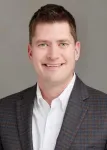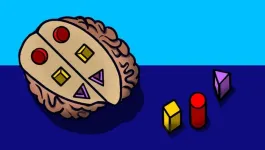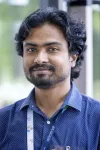(Press-News.org) [San Diego, Calif --September 7, 2024, 8:30 a.m. PCT)– Despite significant improvements in the perception of biomarker testing compared to a 2018 survey, substantial barriers to implementation persist globally, according to results of the 2024 IASLC Global Survey on Biomarker Testing released today at the International Association for the Study of Lung Cancer (IASLC) World Conference on Lung Cancer 2024.
The 2018 survey revealed the adoption of biomarker testing was low due to cost, lack of quality and standards, access, awareness, and long turnaround times. However, since 2018, numerous therapeutic advances have been made in late-stage and early-stage lung cancer, according to Matthew Smeltzer, PhD, of the University of Memphis, Memphis, Tenn.
The 2024 survey generated 1,677 responses from 90 countries and 14 medical disciplines and found a positive shift in the perception and frequency of biomarker testing, according to Smeltzer.
The survey was available in English, French, Japanese, Chinese, Portuguese, and Spanish. The survey contained sections on demographics, current practices and perceptions, pathology, ordering tests or treatment, acquiring tissue, barriers to optimal testing, and potential solutions. The researchers grouped responses by IASLC global region and by High/Upper-Middle income countries (HUMIC) and Low/Middle income countries (LMIC).
Smeltzer said that 67% of respondents reported that more than half of lung cancer patients are tested in their country, a significant increase from 39% reported in 2018. Despite this progress, barriers remain prominent, with cost (27.2%), time (13.9%), and sample quality (13.8%) cited as major obstacles. Notably, 43% of respondents reported treating patients before receiving biomarker results.
Respondents from High/Upper-Middle Income Countries (HUMIC) expressed greater healthcare system support for biomarker testing compared to those from Low/Middle Income Countries (LMIC), where only 18.6% noted similar support. The survey also revealed that a substantial proportion of testing costs are only partially reimbursed, and turnaround times for tissue testing average 14 days with no clear consensus on the causes of delays, he reported.
The survey respondents suggested a number of methods to improve biomarker testing, including enhanced education for providers and patients, streamlined clinical processes through reflex testing, increased funding from both governmental and insurance sources, and broader policy changes. Smeltzer indicated that the IASLC plans to launch a series of initiatives to address these areas, targeting awareness, access, processes, and policy improvements.
“The survey’s findings reflect both the progress made and the work still needed to ensure that biomarker testing becomes a standard part of lung cancer care worldwide,” Smeltzer reported.
About the IASLC:
The International Association for the Study of Lung Cancer (IASLC) is the only global organization dedicated solely to the study of lung cancer and other thoracic malignancies. Founded in 1974, the association's membership includes more than 10,000 lung cancer specialists across all disciplines in over 100 countries, forming a global network working together to conquer lung and thoracic cancers worldwide. The association also publishes the Journal of Thoracic Oncology, the primary educational and informational publication for topics relevant to the prevention, detection, diagnosis, and treatment of all thoracic malignancies. Visit www.iaslc.org for more information.
About the WCLC:
The World Conference on Lung Cancer (WCLC) is the world’s largest meeting dedicated to lung cancer and other thoracic malignancies, attracting nearly 7,000 researchers, physicians and specialists from more than 100 countries. The goal is to increase awareness, collaboration and understanding of lung cancer, and to help participants implement the latest developments across the globe. The conference will cover a wide range of disciplines and unveil several research studies and clinical trial results. For more information, visit https://wclc2024.iaslc.org.
END
IASLC Global Survey on biomarker testing reveals progress and persistent barriers in lung cancer biomarker testing
Survey shows improvement in biomarker testing, but many patients are still treated without it
2024-09-07
ELSE PRESS RELEASES FROM THIS DATE:
Research shows pathway to developing predictive biomarkers for immune checkpoint inhibitors
2024-09-07
(San Diego, Calif.---September 7, 2024, 8:30 a.m. PCT) — A study presented today at the International Association for the Study of Lung Cancer 2024 World Conference on Lung Cancer demonstrated a promising pathway toward developing predictive biomarkers for immune checkpoint inhibitors.
In non-small cell lung cancer, immune checkpoint inhibitors offer significant promise, yet their efficacy is limited to a subset of patients. Identifying reliable predictive biomarkers is crucial for optimizing ...
Just how dangerous is Great Salt Lake dust? New research looks for clues
2024-09-07
As Utah’s Great Salt Lake shrinks, exposing more of its playa, concerns grow about the dust the dry lakebed emits. But scientists lack the data to fully understand what pollutants are present in these airborne sediments.
Researchers from the University of Utah are attempting to get a handle on this question and the latest findings are concerning.
Sediments in the lake’s exposed playa are potentially more harmful than other major dust sources affecting the Wasatch Front’s air quality, according to a study published online recently in the journal Atmospheric Environment.
These sediments, when ...
Maroulas appointed Associate Vice Chancellor, Director of AI Tennessee
2024-09-06
The University of Tennessee, Knoxville, has appointed Vasileios Maroulas associate vice chancellor and director of the AI Tennessee Initiative. AI Tennessee was established in 2022 to strengthen UT’s research in AI, expand the number of UT students developing AI skills and competencies, and position the state of Tennessee as a national and global leader in the data-intensive knowledge economy.
“I look forward to advancing UT into a leader for AI research, innovation, and education,” said Maroulas. “By harnessing the power of transdisciplinary research, pioneering new learning ...
New chickadee research finds cognitive skills impact lifespan
2024-09-06
New chickadee research finds cognitive skills impact lifespan
Working ‘smarter’ not harder important to natural selection and survival rates
While there is no denying ‘survival of the fittest’ still reigns supreme in the animal kingdom, a new study shows being smartest – or at least smarter – is pretty important, too.
Western University animal behaviour and cognition researcher Carrie Branch and her collaborators at the University of Nevada, Reno and the University of Oklahoma tracked the spatial cognition and ...
Cognitive behavioral therapy enhances brain circuits to relieve depression
2024-09-06
Cognitive behavioral therapy, one of the most common treatments for depression, can teach skills for coping with everyday troubles, reinforce healthy behaviors and counter negative thoughts. But can altering thoughts and behaviors lead to lasting changes in the brain?
New research led by Stanford Medicine has found that it can — if a therapy is matched with the right patients. In a study of adults with both depression and obesity — a difficult-to-treat combination — cognitive behavioral therapy that focused on problem ...
Terasaki Institute awarded $2.3 Million grant from NIH for organ transplantation research using organs-on-a-chip technology
2024-09-06
September 6, 2024 —Researchers at the Terasaki Institute for Biomedical Innovation have been awarded a multi-million grant from the National Institutes of Health (NIH) to advance research in organ transplantation and antibody-mediated rejection. This funding will facilitate the development of an innovative multi-organs-on-a-chip platform aimed at transforming our understanding of transplant rejection and immune tolerance.
Organ transplantation is widely recognized as the most effective treatment for organ failure. However, the need for lifelong immunosuppressive ...
Atoms on the edge
2024-09-06
Typically, electrons are free agents that can move through most metals in any direction. When they encounter an obstacle, the charged particles experience friction and scatter randomly like colliding billiard balls.
But in certain exotic materials, electrons can appear to flow with single-minded purpose. In these materials, electrons may become locked to the material’s edge and flow in one direction, like ants marching single-file along a blanket’s boundary. In this rare “edge state,” electrons can flow without ...
Postdoc takes multipronged approach to muon detection
2024-09-06
NEWPORT NEWS, VA – When Debaditya Biswas was a high school student in India, his math teacher, Dr. Satyabrata Das, sparked his interest in physics.
“Before I joined his class, I was really not sure what I was going to do in life,” said Biswas, a postdoctoral research associate at Virginia Tech. “He revealed the beauty of science to me.”
Now, as the 2024 Jefferson Science Associates (JSA) Postdoctoral Prize winner, Biswas hopes to reveal a new method for the U.S. Department of Energy's Thomas Jefferson National Accelerator Facility to detect muons.
By themselves, muons aren’t actually that difficult for physicists to detect. They are a type ...
Mathematical proof: Five satellites needed for precise navigation
2024-09-06
As a rule, GPS indicates our location with an accuracy of just a few meters. But we have all experienced situations where the possible error increases to a few hundred meters or the indicated location is simply wrong. One reason for this can be the small number of satellites with line-of-sight contact to the navigation device or unfavorable relative alignment of the satellites.
How does GPS work?
GPS satellites are equipped with an extremely accurate atomic clock and know their positions at all times. They continually transmit the time and their location using radio waves. A mobile phone ...
Scalable, multi-functional device lays groundwork for advanced quantum applications
2024-09-06
Researchers have demonstrated a new multi-functional device that could help advance the scalability of solid-state color centers, enabling them to be used in larger and more complex quantum computers and networks. As efficient photon-spin interfaces, solid-state color centers are promising candidates for qubit nodes — essential units for storing and processing quantum information.
Solid-state color centers are point defects that can absorb and emit light at specific wavelengths. To be useful in real-world quantum applications, they must be optically addressable in a fast and controllable manner while also allowing ...
LAST 30 PRESS RELEASES:
Wiley to expand Advanced Portfolio
Invisible battery parts finally seen with pioneering technique
Tropical forests generate rainfall worth billions, study finds
A yeast enzyme helps human cells overcome mitochondrial defects
Bacteria frozen in ancient underground ice cave found to be resistant against 10 modern antibiotics
Rhododendron-derived drugs now made by bacteria
Admissions for child maltreatment decreased during first phase of COVID-19 pandemic, but ICU admissions increased later
Power in motion: transforming energy harvesting with gyroscopes
Ketamine high NOT related to treatment success for people with alcohol problems, study finds
1 in 6 Medicare beneficiaries depend on telehealth for key medical care
Maps can encourage home radon testing in the right settings
Exploring the link between hearing loss and cognitive decline
Machine learning tool can predict serious transplant complications months earlier
Prevalence of over-the-counter and prescription medication use in the US
US child mental health care need, unmet needs, and difficulty accessing services
Incidental rotator cuff abnormalities on magnetic resonance imaging
Sensing local fibers in pancreatic tumors, cancer cells ‘choose’ to either grow or tolerate treatment
Barriers to mental health care leave many children behind, new data cautions
Cancer and inflammation: immunologic interplay, translational advances, and clinical strategies
Bioactive polyphenolic compounds and in vitro anti-degenerative property-based pharmacological propensities of some promising germplasms of Amaranthus hypochondriacus L.
AI-powered companionship: PolyU interfaculty scholar harnesses music and empathetic speech in robots to combat loneliness
Antarctica sits above Earth’s strongest “gravity hole.” Now we know how it got that way
Haircare products made with botanicals protects strands, adds shine
Enhanced pulmonary nodule detection and classification using artificial intelligence on LIDC-IDRI data
Using NBA, study finds that pay differences among top performers can erode cooperation
Korea University, Stanford University, and IESGA launch Water Sustainability Index to combat ESG greenwashing
Molecular glue discovery: large scale instead of lucky strike
Insulin resistance predictor highlights cancer connection
Explaining next-generation solar cells
Slippery ions create a smoother path to blue energy
[Press-News.org] IASLC Global Survey on biomarker testing reveals progress and persistent barriers in lung cancer biomarker testingSurvey shows improvement in biomarker testing, but many patients are still treated without it







